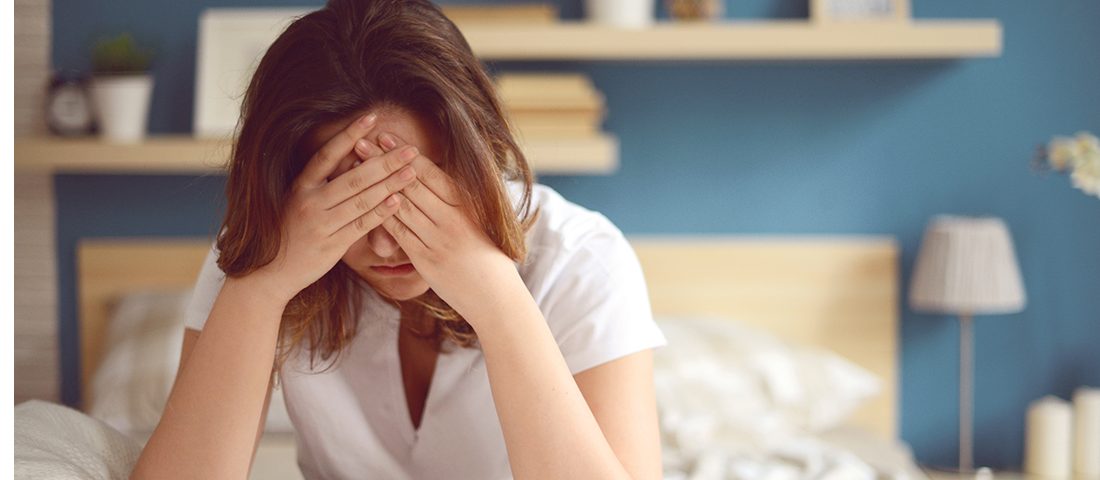
HAPPY GUT, HAPPY LIFE: How the Gut Affects the Mood
June 21, 2019
Finding the Right Yoga Style For You
October 3, 2019How to Wake up Feeling Refreshed

Sleep is vital to our health and wellbeing. Without the right amount of consistent, quality sleep, the human body is unable to perform to its optimal level. Unfortunately, a lack of quality sleep is all too common a problem in Australia with studies showing nearly 50% of adults experience inadequate duration and depth of sleep. One of the first signs of a poor night’s sleep is waking up feeling sluggish, sleepy and not refreshed. So how do we know what is impeding our sleep and what to do about it? If you are getting enough sleep but waking up feeling exhausted, there are three simple reasons to consider as to why your sleep isn’t leaving you feeling refreshed.
Your natural rhythms are off
Our bodies are ruled by circadian rhythms, natural rhythms which make us feel tired and alert at different times of the day. While the hypothalamus in our brains controls these cycles, external stimuli such as light can affect them drastically. Waking up with the sun and getting out into the sunlight during the day can help reset these rhythms, meaning you fall asleep quicker and enter into a deeper sleep of an evening. While natural light can help us sleep, unnatural light, such as the blue light emitted by devices like television, phones and tablets can trick your brain into thinking it’s still daytime and suppress melatonin production, the hormone which tells your body it’s time to fall asleep. By turning off all technology at least an hour before bed and reading a book or engaging in a hobby in dim lighting, you give your brain time to wind down. Having a set routine for when you wake up and when you sleep can also make it easier for your brain to know when it’s time to shut down, leading to more regular, successful sleep.
Your sleeping conditions aren’t ideal
Waking up multiple times in the night can reduce the amount of deep, restorative REM (rapid eye movement) sleep you experience and mean you aren’t waking up refreshed. This can be caused by multiple factors; uncomfortable pillows or mattresses which are too hard or soft, a pet or child sleeping in your room and constantly waking you or a room which is too hot or cold. People who sleep deeply have been found to experience a drop in body temperature before they transition into REM sleep. Bedding which is too warm or rooms with higher ambient temperatures will rouse you from your sleep regularly and disrupt your natural sleep cycles.
You’re eating the wrong things
While the right lighting and temperature are crucial to a refreshing night’s sleep, so too are the things you put into your body. Caffeine for example, stimulates your central nervous system, changing the function of your brain and making it harder for you to fall asleep. Ideally caffeine should be avoided four to six hours before bedtime. Alcohol, on the other hand, depresses your nervous system. While this can help you fall asleep quickly by producing adenosine, a sleep inducing hormone, it wears off quickly too, waking you up. Alcohol has also been found to block REM sleep, meaning you only experience very shallow sleep if you’ve imbibed too much. Heavy meals, carbohydrates and dairy products have also been fingered as potential causes of poor sleep when consumed too close to bedtime.
With deep, restorative sleep needed for almost every function our body undertakes, it is important to make quality sleep a priority so you can fall asleep easily, stay asleep and wake up refreshed and ready to take on the day.
“It is apparent that inadequate sleep, of either duration or quality, and its daytime consequences are very common in Australian adults, affecting 33-45% of adults”
Adams, R. Appleton, S. Taylor, A. McEvoy, D. and Antic, N. 2016. Report to the Sleep Health Foundation 2016 Sleep Health Survey of Australian Adults. The University of Adelaide, South Australia



